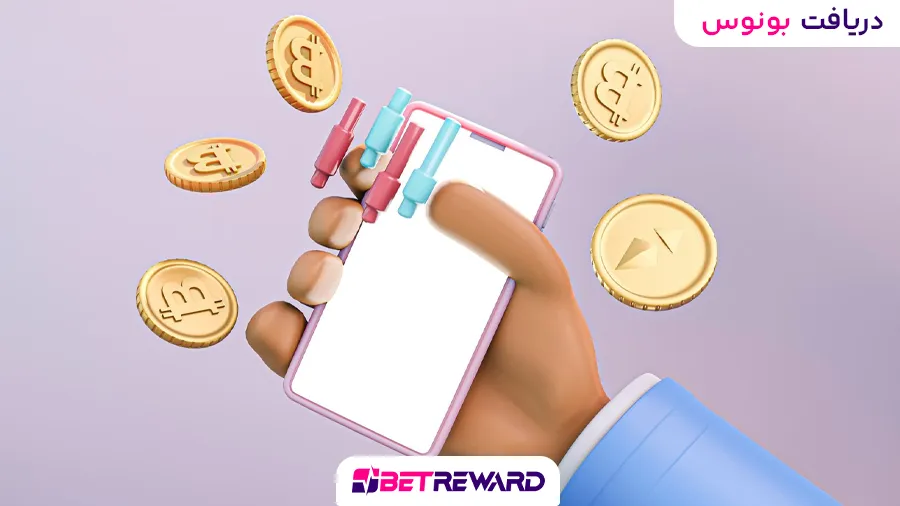In the vibrant world of gaming, where chance and strategy intertwine, few franchises have captivated the imagination quite like “Deal or No Deal.” Originally emerging as a hit television show, its leap into the realm of casinos has transformed the beloved format into a dynamic and exhilarating gambling experience. “Casino Deal or No Deal” combines the thrill of high-stakes wagering with the suspense of revealing mysterious cases, inviting players to partake in a game of risk and reward. This article delves into the intriguing fusion of luck and decision-making that characterizes this unique casino experience, exploring how its innovative mechanics and engaging format attract both novice gamers and seasoned gamblers alike. Whether you’re drawn in by the allure of massive jackpots or the excitement of beating the odds, “Casino Deal or No Deal” offers a fresh spin on an age-old game of chance. Join us as we uncover the elements that make this gaming phenomenon a must-try for anyone seeking a dash of adrenaline at their favorite casino.
Table of Contents
- Understanding the Game Mechanics of Casino Deal or No Deal
- Strategies for Maximizing Winnings in a High-Stakes Environment
- The Role of Luck vs. Skill in Casino Deal or No Deal
- Navigating the Psychological Aspects of Decision-Making in Gameplay
- Q&A
- Future Outlook
Understanding the Game Mechanics of Casino Deal or No Deal
The game mechanics of Casino Deal or No Deal are designed to offer a thrilling experience rooted in risk and reward. Players begin by choosing from a selection of briefcases, each holding various amounts of virtual cash. The excitement unfolds as the player gradually eliminates choices, revealing the contents of the selected briefcases along the way. Each round is punctuated by a crucial decision point, as the banker makes offers based on the player’s potential winnings. This mechanic emphasizes strategy and intuition, prompting players to weigh the advantages of continuing versus accepting the banker’s offer.
A pivotal aspect is the interaction between the player and the banker, which adds an extra layer of strategy. As the game progresses, players find themselves juggling several factors, including:
- Remaining Briefcases: Each unopened briefcase carries a hidden value, influencing the banker’s subsequent offers.
- Emotional Dynamics: The thrill of anticipation can often sway players’ decisions, challenging their resolve.
- Risk Assessment: Players must consider their comfort with uncertainty and potential loss against the allure of increased winnings.
To illustrate the offer progression, the following table summarizes a hypothetical scenario of banker’s offers after key rounds:
| Round | Banker’s Offer |
|---|---|
| 1 | $10,000 |
| 2 | $15,000 |
| 3 | $20,000 |
| 4 | $30,000 |
This embrace of unpredictability makes Casino Deal or No Deal not just a game of chance, but a test of psychological prowess, as players navigate their way through decisions that could lead to impressive gains or unexpected losses.
Strategies for Maximizing Winnings in a High-Stakes Environment
In a high-stakes environment, maintaining a disciplined approach is crucial for maximizing potential winnings. Setting clear limits on both losses and wins is a fundamental practice that helps players avoid the emotional pitfalls of the game. Consider the following strategies to stay in control:
- Bankroll Management: Allocate a specific amount for each session to mitigate risks.
- Game Selection: Choose games with favorable odds and your preferred skill level.
- Time Management: Limit your playtime to maintain focus and avoid fatigue.
Another effective strategy revolves around understanding the game’s mechanics and psychology involved in the decision-making process. Engaging with the nuances of the game can provide insights that lead to smarter plays. To enhance your game knowledge, consider these tactics:
- Study Patterns: Observe previous rounds to identify potential patterns.
- Practice Diversification: Allocate your play across different games to reduce volatility.
- Utilize Technology: Use data analysis tools to strategize based on statistical insights.
The Role of Luck vs. Skill in Casino Deal or No Deal
In Casino Deal or No Deal, players are propelled into a thrilling narrative where luck and skill intricately weave together, creating a uniquely engaging experience. Despite the clear reliance on chance—such as the random selection of briefcases filled with cash—strategic decision-making plays a crucial role. A player must weigh the options presented by the banker against their instinctual reading of the situation. Here, key factors affecting the balance include:
- Risk Assessment: Evaluating the potential gains versus losses.
- Game Psychology: Understanding the banker’s strategy and manipulating emotional cues.
- Prior Experience: Utilizing past gameplay insights to inform current decisions.
As players navigate through rounds of opening briefcases, they face a tug-of-war between emotional decision-making and calculated risks. While luck dictates which briefcases hold higher values, skill surfaces in the player’s approach to the banker’s offers. The interplay between these elements can be visualized in the following table:
| Aspect | Influence of Luck | Influence of Skill |
|---|---|---|
| Briefcase Selection | High | Low |
| Banker’s Offer | Medium | High |
| Emotional Resilience | Low | High |
Navigating the Psychological Aspects of Decision-Making in Gameplay
The thrill of uncertainty lies at the heart of gameplay, especially in scenarios reminiscent of real-life decisions we encounter beyond the casino walls. In “Deal or No Deal,” players are faced with a myriad of choices, each imbued with potential rewards and risks that weigh heavily on their minds. As the game progresses, players experience phenomena such as loss aversion, where the fear of losing a payout often overshadows the excitement of winning. The psychological toll of these decisions can lead to irrational behavior, where players might opt to hold onto their cases longer, swayed by the emotional attachment they develop over time, rather than adhering to logical strategies.
Players also grapple with cognitive biases throughout their journey, which can skew their decision-making processes. The “gambler’s fallacy,” for instance, may prompt players to believe that consecutive losses imply an imminent win. Additionally, the framing effect plays a crucial role; how choices are presented—be it as potential gains or losses—can profoundly influence decisions. These elements create a rich tapestry of psychological intricacies in gameplay that dictate not only how participants play but also how they perceive their outcomes, ultimately shaping their holistic gaming experience.
Q&A
Q&A on “Casino Deal or No Deal”
Q1: What is “Casino Deal or No Deal”?
A1: ”Casino Deal or No Deal” is a thrilling twist on the classic television game show format, combining elements of chance and strategy with the excitement of casino gaming. Players are presented with a selection of briefcases, each containing a different monetary value, alongside the opportunity to engage with a ‘banker’ who decides the offers players may accept or decline as the game unfolds.
Q2: How does the gameplay differ from the original TV show?
A2: While the original “Deal or No Deal” focused on choice and risk assessment with limited game mechanics, “Casino Deal or No Deal” introduces a casino element where players can place bets, unlock bonus rounds, and potentially gamble their winnings in real-time. This hybrid format allows for a more interactive experience, appealing to both casino enthusiasts and fans of the traditional show.
Q3: Is “Casino Deal or No Deal” played online or in physical venues?
A3: “Casino Deal or No Deal” is versatile in its availability. Players can enjoy it in various formats, including online casinos, where they can play from the comfort of their homes, as well as live casino environments that offer a more immersive experience with dealers and fellow participants.
Q4: Can players influence the game’s outcome?
A4: In “Casino Deal or No Deal,” players have some influence over the game through their decisions to accept or reject offers made by the banker. However, the fundamental element of chance remains, especially with the randomness of the briefcase values and the potential for luck-based bonuses that can sway the game’s direction.
Q5: Are there strategies to increase the chances of winning?
A5: While “Casino Deal or No Deal” incorporates elements of decision-making that can influence outcomes, it ultimately remains a game of chance. Players may benefit from understanding probability and managing their bets wisely, but no strategy can guarantee a win. It’s essential for players to balance risk and potential rewards while enjoying the game for its entertainment value.
Q6: Is it suitable for all types of players?
A6: Yes, “Casino Deal or No Deal” can cater to a wide audience, from casual gamers looking to have fun to serious gamblers seeking strategic engagement. Its blend of familiar television entertainment with dynamic casino mechanics creates an accessible environment for various skill levels and preferences.
Q7: What are some potential pitfalls players should be aware of?
A7: As with any casino game, it’s crucial for players to be aware of the risks involved. Gambling can lead to losses, and it’s easy to get caught up in the excitement of the game. Setting limits on time and expenditure before playing is advisable to ensure that it remains an enjoyable and responsible form of entertainment.
Q8: Where can players find “Casino Deal or No Deal”?
A8: Players can typically find “Casino Deal or No Deal” at numerous online casino platforms or in select physical casinos that feature game show-inspired offerings. It’s always recommended to choose reputable gaming sites and venues to ensure a safe and fair gaming experience.
Future Outlook
As we conclude our exploration of “Casino Deal or No Deal,” it’s clear that this innovative blend of games offers a unique experience for both traditional casino enthusiasts and fans of the beloved television show. With its mix of strategy, suspense, and chance, the game invites players into an engaging world where critical decisions can lead to significant rewards. Whether you find yourself drawn to the thrill of opening the boxes, the allure of the banker’s offers, or the camaraderie of fellow players, the essence of “Deal or No Deal” resonates with a diverse audience.
In the ever-evolving landscape of gambling entertainment, this game stands out as a testament to how creativity can transform familiar concepts into fresh adventures. As you consider diving into this exhilarating experience, remember that every game played is not just about the potential win, but also about the stories forged and the memories created at the gaming table. So, take a seat, make your decisions wisely, and may your journey through “Casino Deal or No Deal” be filled with excitement and possibility.






